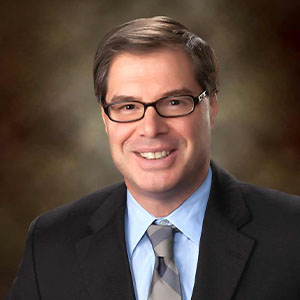
A 42-year-old female advanced practice provider (APP) presents to her primary physician with a chief complaint of fatigue and feeling “stressed.” She has no chronic medical problems and takes no medication. The symptoms began three to four months ago. Additional symptoms include a loss of interest in her work and, at times, a loss of empathy for patients. She denies weight loss, decrease in appetite, GI bleeding or any other symptoms. She states she has a happy and supportive relationship with her husband and children. Recent labs include normal complete blood cell count, comprehensive metabolic panel and thyroid studies. She is concerned her symptoms may represent “burnout.” Her physician agrees and states they will work together to develop and implement an appropriate management plan.
Primary pillars of burnout include:
A) Emotional exhaustion
B) Depersonalization
C) Low sense of personal accomplishment and self-value
D) All of the above
The correct answer is D, all of the above.
Practice Pearls
Background
- Burnout is a state of emotional, physical and mental exhaustion caused by excessive and prolonged stress.1
- Emotional exhaustion is often multifactorial and may result from a constant demand for more work, increased work from home, increased demands from patients and increased administrative burden.2
- Depersonalization results in a loss of empathy and viewing patients as an obstacle and not an opportunity to heal.2
- Emotional exhaustion and depersonalization culminate in a low sense of personal accomplishment and self-value.1
- Approximately one-third of nurse practitioners experience high depersonalization, and one-third of physician assistants meet the criteria for burnout.3
Promoting Well-Being and Work-Life Satisfaction
Control of burnout can be achieved. Personal and institutional intervention can improve well-being, resilience and work-life satisfaction.
Institution Steps
- Shift the emphasis from getting more out of people to investing in people
- Create a culture that embraces APPs as colleagues and enhances their personal lives
- Create flexible work schedules with clearly defined schedules and responsibilities (i.e., four 10-hour days vs. five eight-hour days).
- Establish mentors and create an institutional environment of perpetual learning
- Benevolent vacation policies (minimum five weeks) and flexible “sick leave”
- Equitable salary and total compensation package, including CME time and money
Personal Steps
- Recognize the cost of energy-depleting behaviors and change
- Manage your energy, not your time
- Prioritize your individual and family responsibilities and interests
- Build a positive family and social support system (transparent communication, compromise, remove and/or reduce time with negative influences and people)
- List responsibilities and create a manageable list
- Identify main “stressors”; identify those that are solvable and solve them
- Take real vacations—preferably weeklong vacations and long weekends, with no work on vacations; vacations are for rest, fun and re-energizing the mind and body
- Occasionally be selfish and pursue personal interests, such as exercise, reading, yoga and cooking, among others
- Identify things in your workplace that can be helpful stress reducers, which, for some, is utilizing pet therapy, listening to music and/or working in a quiet space4
- Take a few moments during the day to utilize any of the several mobile applications available to help lower stress and reduce burnout (headspace, insight timer, coach.me, and breathe2relax, to name a few)
- Minimize taking work home
Burnout
If burnout occurs, it is imperative to seek appropriate help from experts in treating burnout in health care providers. Options include clinical psychologists, psychiatrists and other health care professionals. Remember, burnout is a real clinical entity affecting many health care providers.

Sarah Enslin, PA-C
University of Rochester Medical Center
Rochester, NY

Joseph Vicari, MD, MBA, FASGE
Rockford Gastroenterology Associates
Rockford, IL
Sarah Enslin, PA-C, is a physician assistant in the division of gastroenterology and hepatology at the University of Rochester Medical Center in Rochester, NY, with over 10 years of experience as a practicing PA in GI. Sarah serves on several national GI committees and is a member of the ASGE Practice Operations Committee and ASGE APP Task Force.
Joseph Vicari, MD, FASGE, joined Rockford Gastroenterology in 1997 and has served as managing partner. He previously served as chair of the ASGE Practice Operations Committee and currently serves as councilor on the ASGE Governing Board and co-chair of the ASGE APP Task Force.
- Smith M, Segal J, Robinson L. Burnout treatment and prevention. HelpGuide.org. Accessed October 29, 2023. www.helpguide.org/articles/stress/burnout-prevention-and-recovery.htm
- DeCross AJ. How to approach burnout among gastroenterology fellows. Gastroenterology. 2020;158:32-35. doi:10.1053/j.gastro.2019.11.032
- Abraham CM, Zheng K, Norful AA, Ghaffari A, Liu J, Poghosyan L. Primary care practice environment and burnout among nurse practitioners. J Nurse Pract. 2021;17:157-162. doi:10.1016/j.nurpra.2020.11.009
- Stallter C, Gustin TS. Evaluating advanced practice nurses' burnout and potential helping modalities. J Nurse Pract. 2021;17:1297-1299. doi:10.1016/j.nurpra.2021.07.003